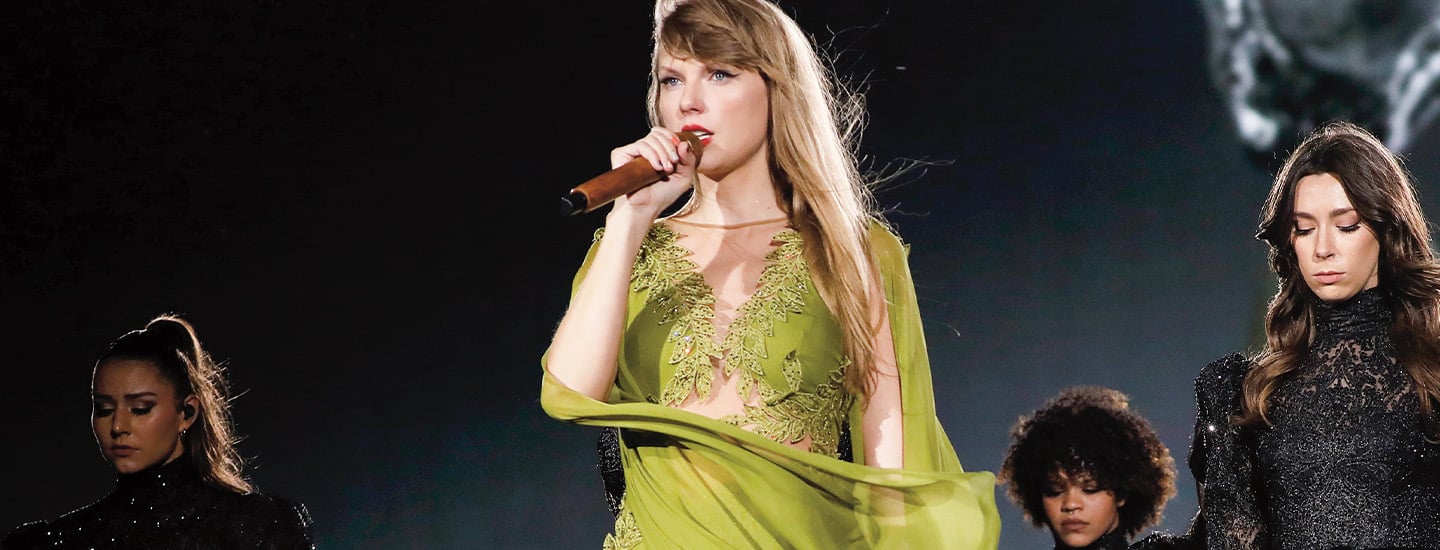Taylor Swift fans sang along to hits like “Shake It Off” and “Anti-Hero.” They danced, laughed, and traded beaded friendship bracelets as the pop star performed for more than three hours.
Their seats? Folding chairs in a stadium parking lot.
As Swift’s sold-out Eras Tour swept the country this past summer, masses of young people camped outside concert venues to at least hear the star’s 44-song set. While 2.4 million Swift fans (known as “Swifties”) had been able to score tickets, millions of others weren’t so lucky.
Taylor Swift performed for more than three hours. The pop star sang hits like “Shake It Off” and “Anti-Hero.” Fans sang along. They danced. They laughed. They traded beaded friendship bracelets.
Their seats? Folding chairs in a stadium parking lot.
Swift’s sold-out Eras Tour swept the country this past summer. About 2.4 million Swift fans (known as “Swifties”) had been able to score tickets. But millions of others were not so lucky. Masses of young people camped outside concert venues. They wanted to at least hear the star’s 44-song set.

